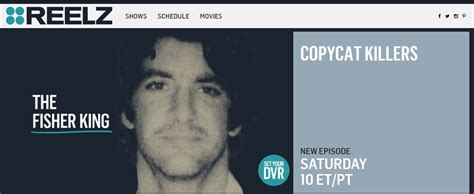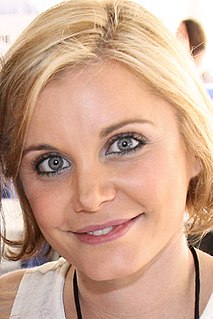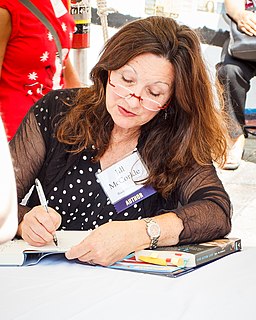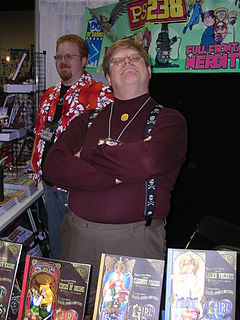A Quote by Ron Franscell
Steve Jackson is a born storyteller. He makes you sweat. . .and turn the page.
Related Quotes
No one reads to hear someone complain about the weather or how poorly their children are behaving. You have to give the readers a reason to turn the page. As a writer you have to invite someone to turn the page. And that is a skill you have to refine. That is why you have to read. You have to read to learn what it is that makes people turn the page.
If it bothers me on the page, I don't do it. If it attracts me on the page and moves me, makes me think a bit, makes me laugh, makes me cry, I'm interested in it. If it's there on the page, it means it's there and up to me to bring it out. I have done some films along the way that have been screwed up and not as good as they read. Some films that are not that good on the page turn into good movies. So I'm fallible is what I'm saying.
For many years I wrote nothing but "I will not sleep with Steve Almond" over and over again, page after page à la Jack Torrance in The Shining. Finally, hundreds of psychotherapy sessions and an intense shaman-guided DMT sweat lodge experience led to a breakthrough, and I was able to write about other people I would not sleep with, and also about people I would.
Yes, the fear of its blankness. At the same time, I kind of loved it. Mallarmé was trying to make the page a blank page. But if you're going to make the page a blank page, it's not just the absence of something, it has to become something else. It has to be material, it has to be this thing. I wanted to turn a page into a thing.
A book is something that young readers can experience on their own time. They decide when to turn the page. They'll put their arm right on the page so you can't turn it because they're not ready to go to the next page yet. They just want to look at it again, or they want to read the book over and over because they really enjoy setting the pace themselves.
And there's wordplay and there's rhythms and you have to be able to get the poetry out of it. You have to be able to sell my jokes. And if you're talking about somebody like Sam Jackson, they do that. Sam Jackson can do that. Sam Jackson can turn it into the spoken word that it was always meant to be and he can sell my jokes. And Christopher Walken can do it and a lot of people can do it, all right.
You need to give the reader a reason to turn the page. In a diary, you are just yourself. You aren't trying to entertain. You aren't trying to get anyone to turn the page. I have over one hundred and fifty six volumes of my diary and I guarantee you that if you read them, you'd stop and never come back.
When you're reading a newspaper and you're seeing ads on the page, it's not kind of invasive. Like, it's on the page next to the article. You can look at it or not. You can turn the page when you're ready. On the internet, the ads - many of the ads - just are so controlling. They insist that you see them.





































